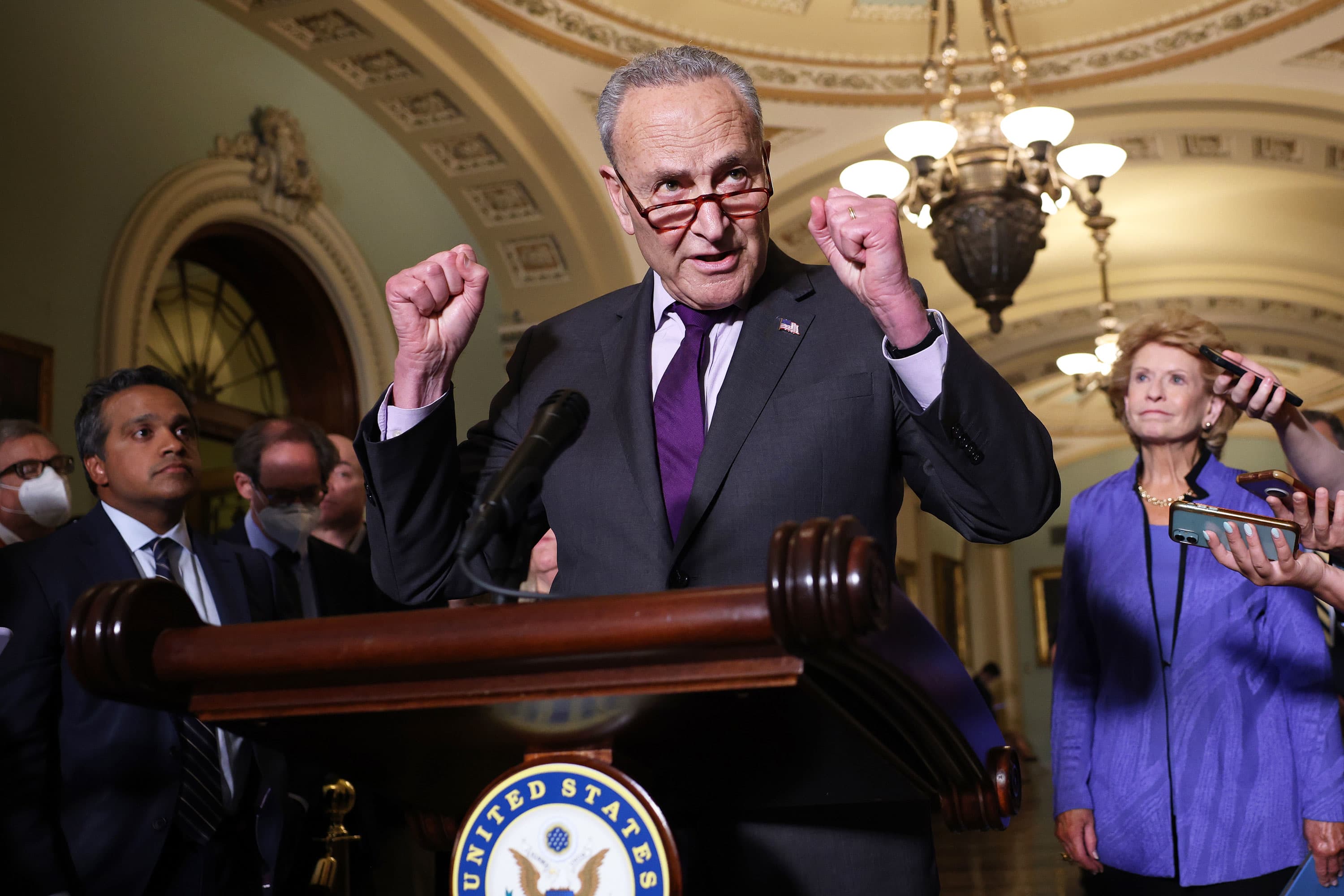
Senate Majority Leader Charles Schumer (D-NY) speaks to reporters following a Senate Democratic luncheon at the U.S. Capitol on June 15, 2021 in Washington, DC.
Kevin Dietsch | Getty Images
Senate Democrats took their first step toward passing a $3.5 trillion spending plan as the party forges ahead with a massive economic agenda.
The Democratic-held chamber approved a budget resolution in a party-line vote. The measure directs committees to craft a bill that would spend up to $3.5 trillion on climate initiatives, paid leave, child care, education and health care.
It marks the first step in the budget reconciliation process, which will allow Democrats to approve their plan without a Republican vote in the Senate split 50-50 by party. The GOP has united against the proposal and the tax increases on corporations and wealthy individuals Democrats plan to use to pay for it.
The vote to approve the resolution follows Senate passage of a $1 trillion bipartisan infrastructure bill Tuesday. Democrats see the bipartisan plan and their reconciliation bill as two complementary planks of an agenda that aims to create jobs, slow climate change and strengthen the social safety net.
Neither bill will pass for weeks or even months. The House will also need to approve a budget resolution before Congress can craft and pass final legislation.
Balancing competing interests in her caucus, House Speaker Nancy Pelosi, D-Calif., has said she will not take up the infrastructure or reconciliation bills until the Senate passes both of them. However, she has faced some pressure from centrists in her party to hold a stand-alone vote on the bipartisan plan.
The House will not return from its August recess until Sept. 20. After passage of the budget resolution, the Senate is also set to leave Washington until mid-September.
Senate Majority Leader Chuck Schumer, D-N.Y., gave committees a Sept. 15 target to put together their portions of the bill.
The resolution calls to expand paid family and medical leave, make child care more accessible, create universal pre-K and tuition-free community college and extend enhanced household tax credits passed during the coronavirus pandemic. It also recommends lowering the Medicare eligibility age and expanding benefits to include dental, vision and hearing.
The measure calls to expand green energy and curb climate change through business tax incentives, consumer rebates and polluter fees.
This story is developing. Please check back for updates.




